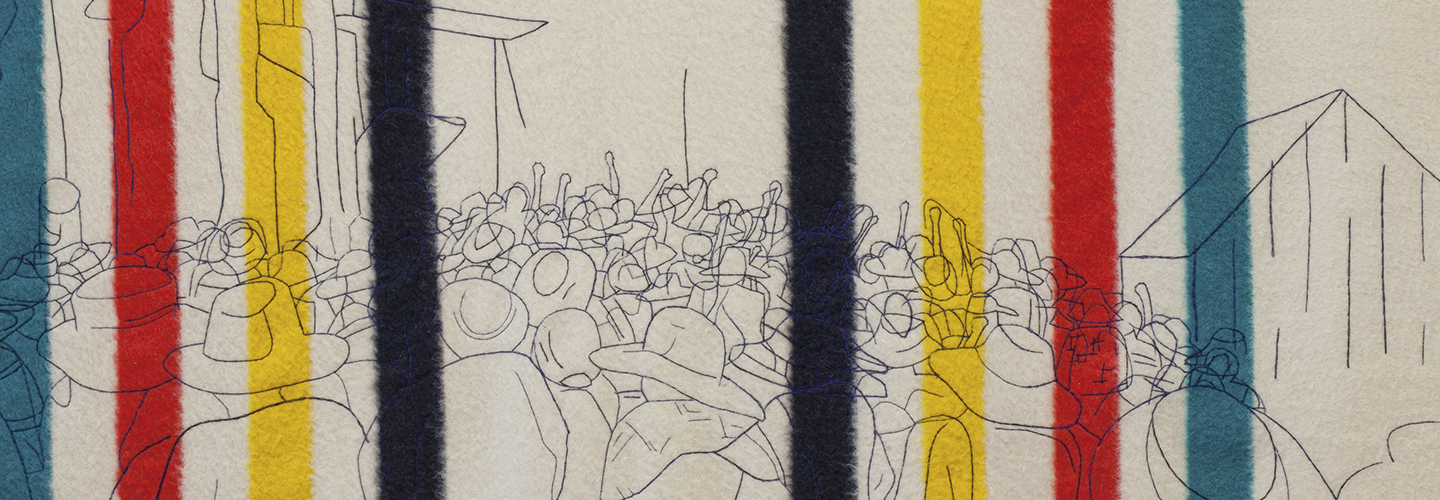If You Remember, I’ll Remember is an invitation to reflect on the past while contemplating the present through works of art exploring themes of love, mourning, war, relocation, internment, resistance, and civil rights in 19th and 20th century North America. This exhibition includes works by artists Kristine Aono (b. 1960), Shan Goshorn (b. 1957), Samantha Hill (b. 1974), McCallum & Tarry (active 1998-2013), Dario Robleto (b. 1972), and Marie Watt (b. 1967). By engaging with historic documents, photographs, sound recordings, oral histories and objects of material culture drawn from institutional and informal archives, these artists highlight individuals’ stories or make connections to the their own histories. Some make explicit links to events across time periods, while in others these associations are implicit.
2017 marks two milestones that connect to works in this exhibition. February 19th is the 75th anniversary of Executive Order 9066 which ordered the war-time internment of over 120,000 Japanese-American citizens and residents living on the west coast of the United States. June 12th is the 50th anniversary of the Supreme Court’s decision of the case Loving v. Virginia, which found laws prohibiting interracial marriage— then in effect in sixteen states—unconstitutional. Touchstones for other works include a class photograph of students at Pennsylvania’s Carlisle Indian Industrial School (operational 1879-1918), documents from a Chicago family archive relating to the early history of the 16th Street Baptist Church in Birmingham, Alabama, a photograph of an early 20th century Potlatch off Vancouver Island, and the love letters of soldiers who served in various wars in which the United States was involved. If You Remember, I’ll Remember juxtaposes themes and histories that are rarely considered in relationship to each other. Together these works pose questions about the purposes and processes of remembering and the responsibilities of those who remember.
Related Video
Block Museum Equity Sewing Circle with artist Marie Watt from Block Museum on Vimeo.

